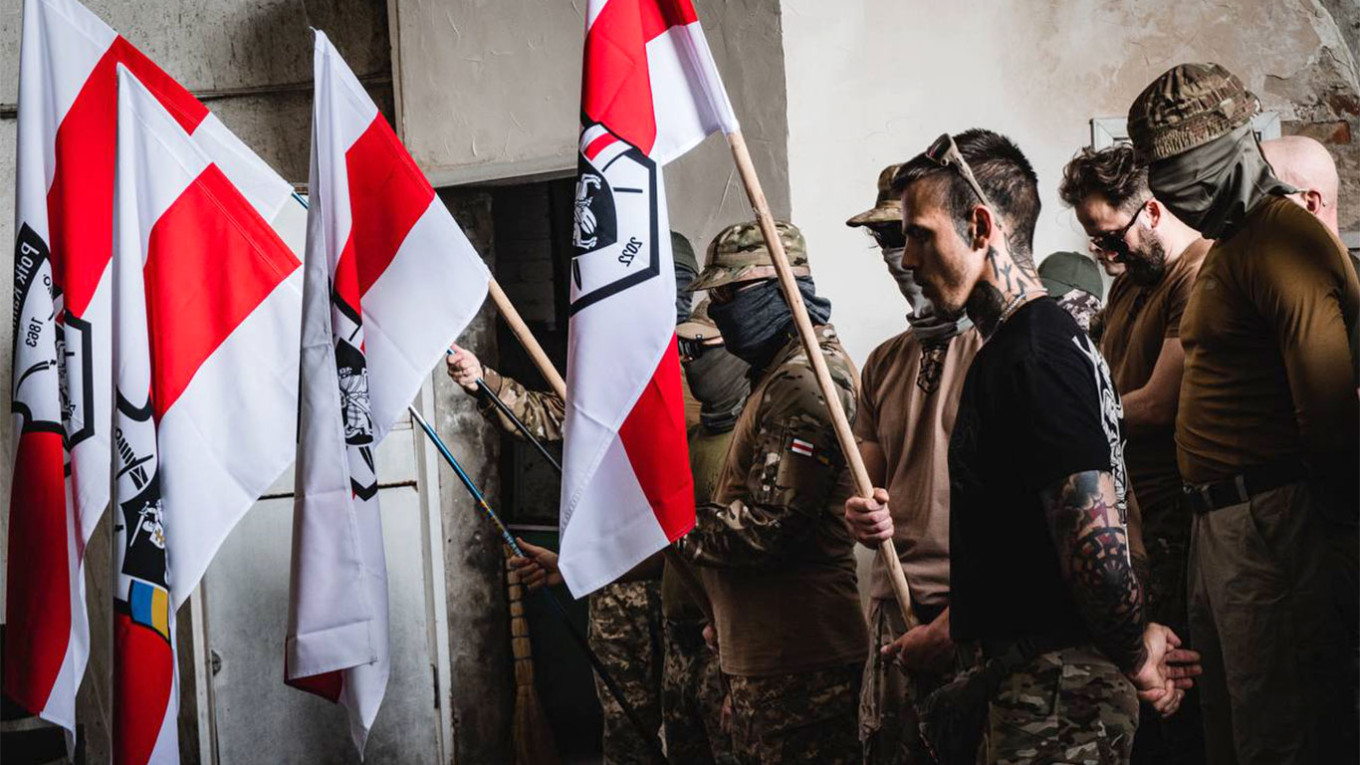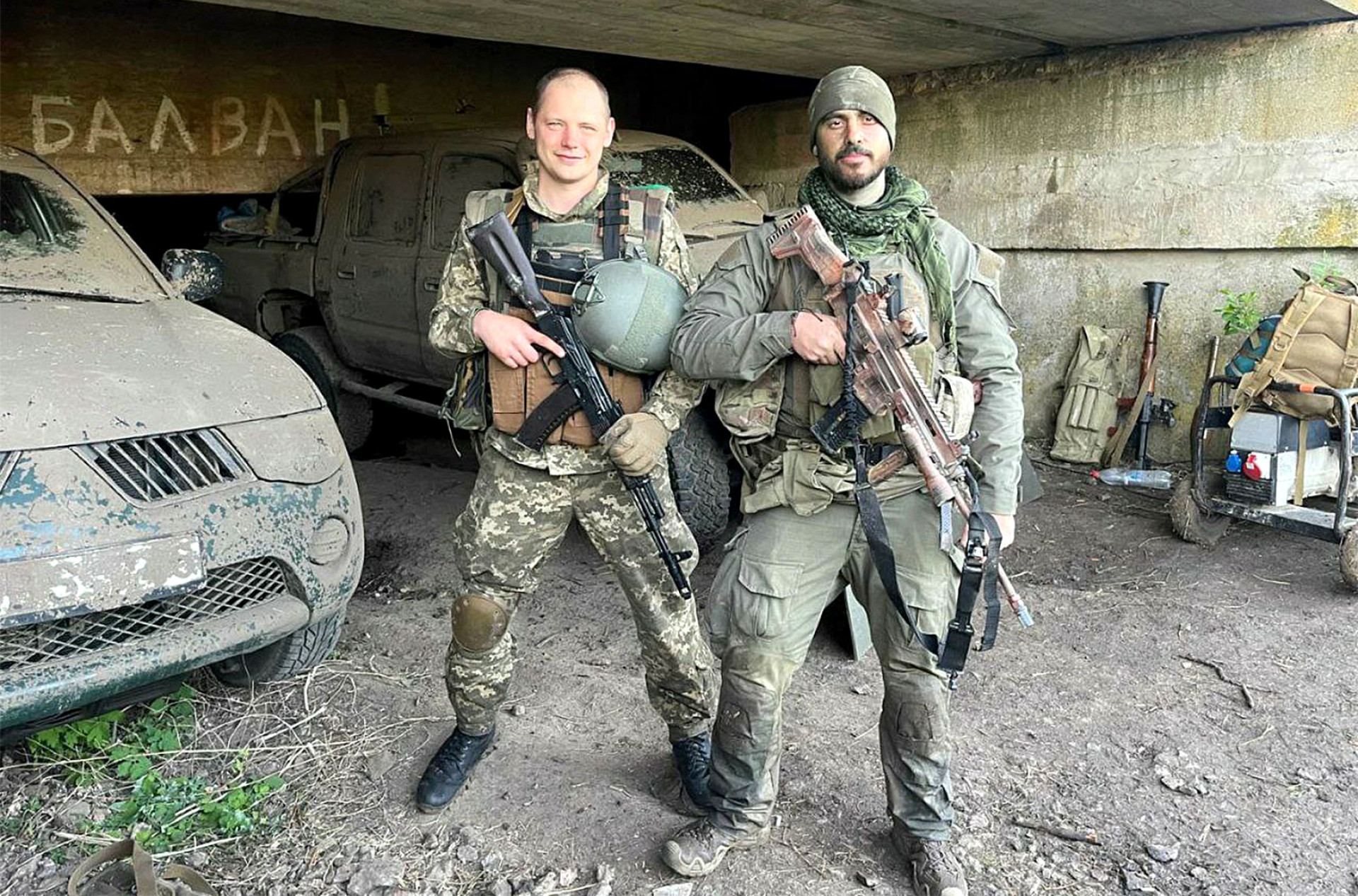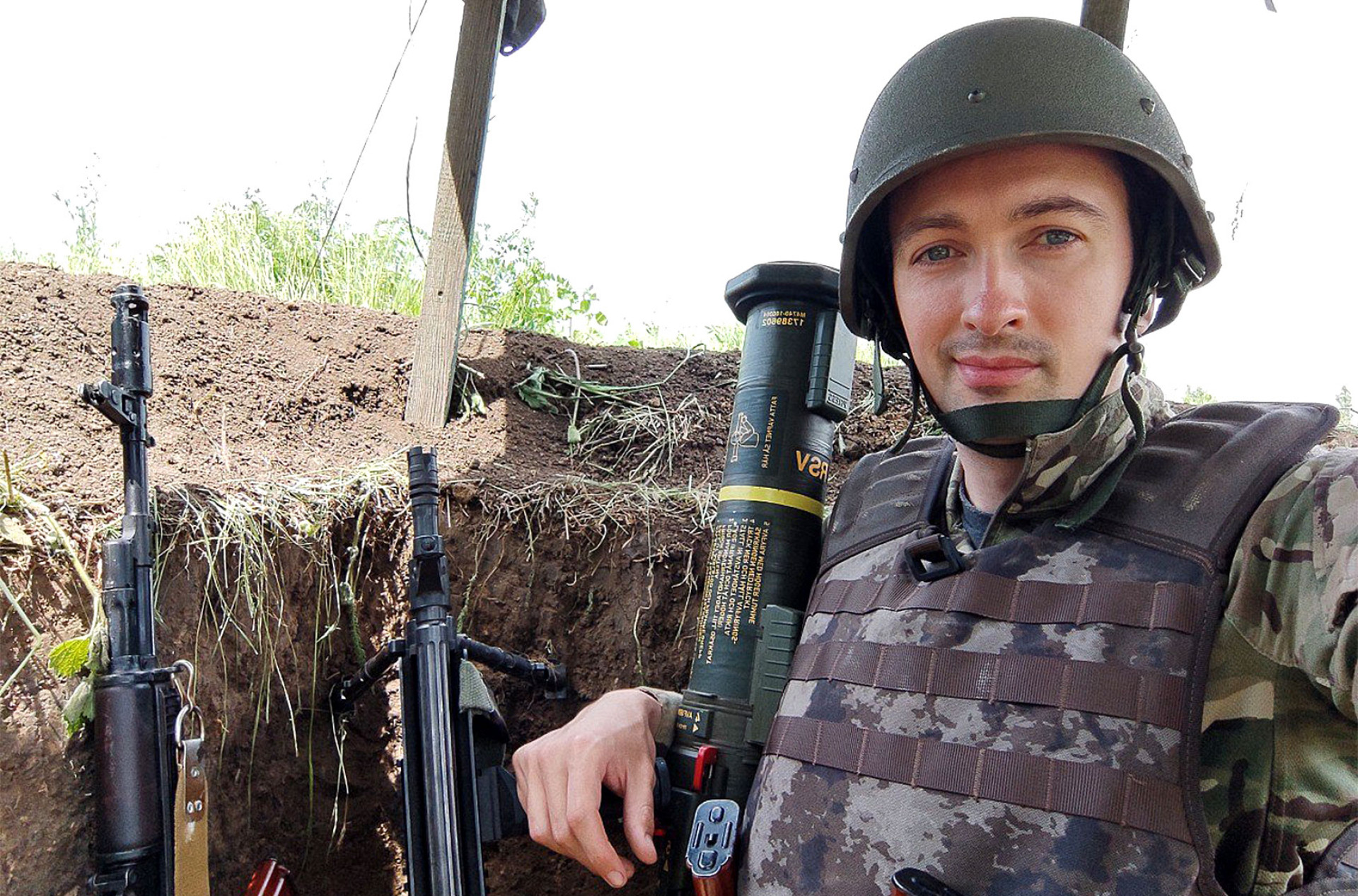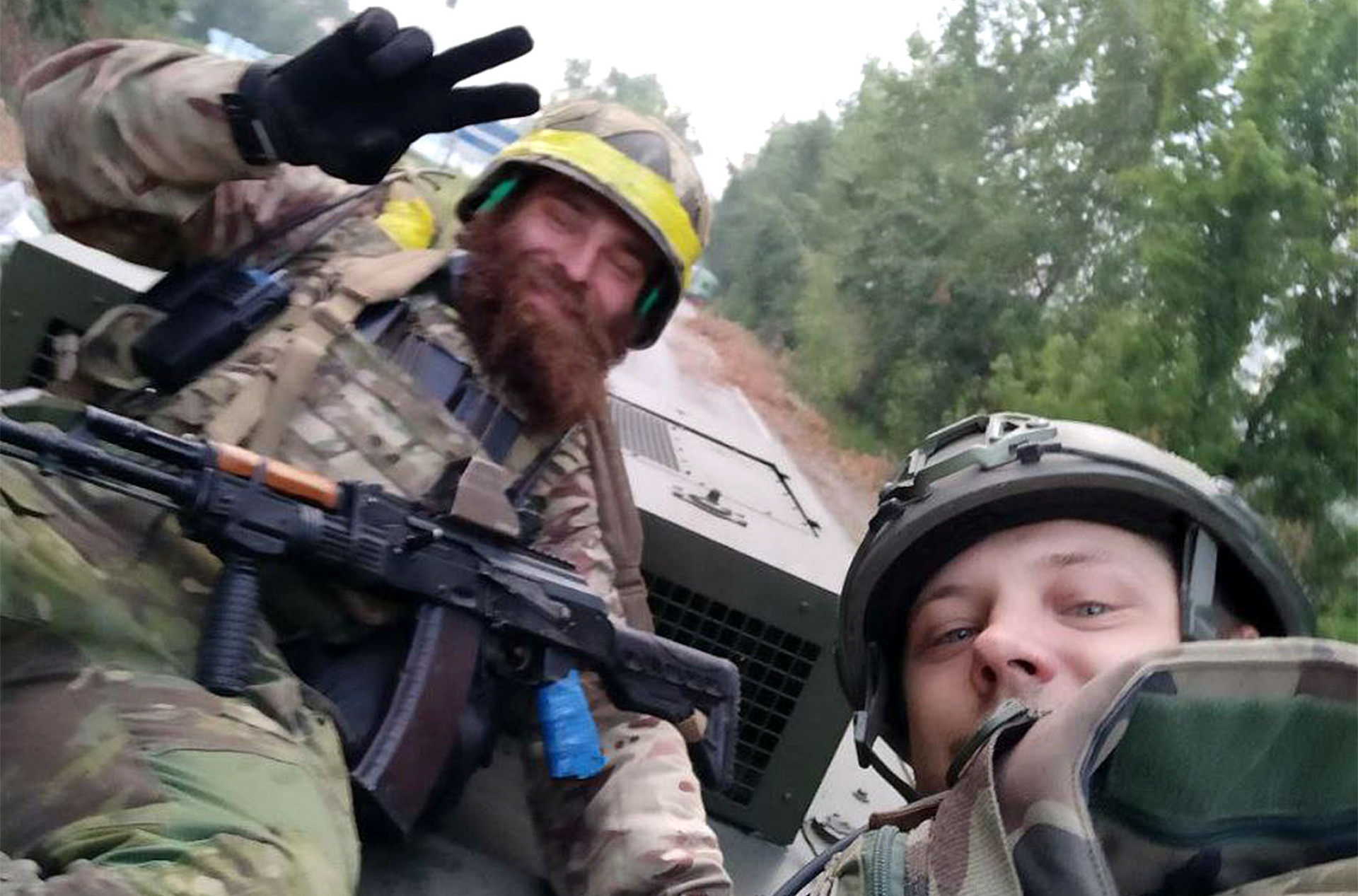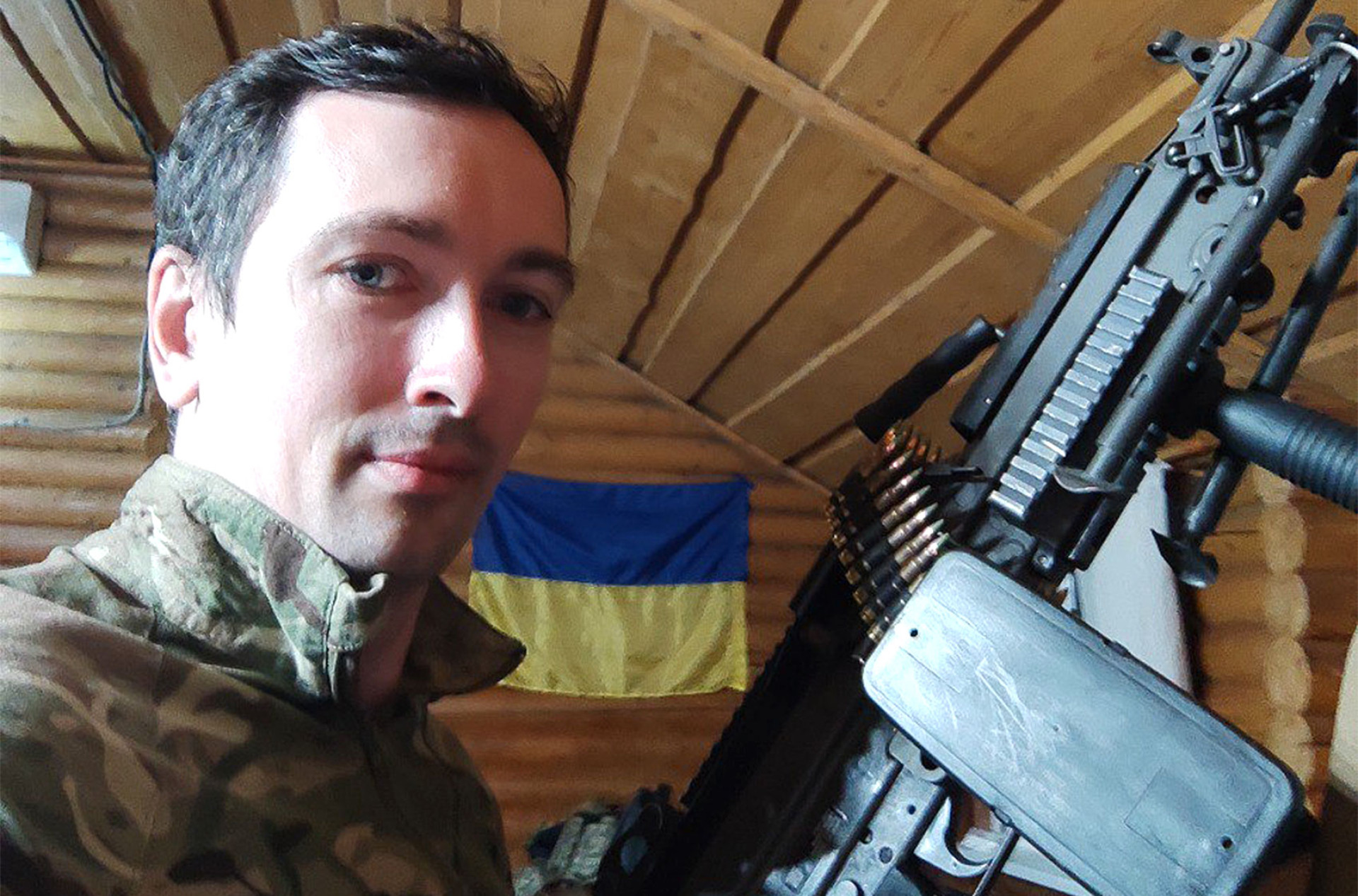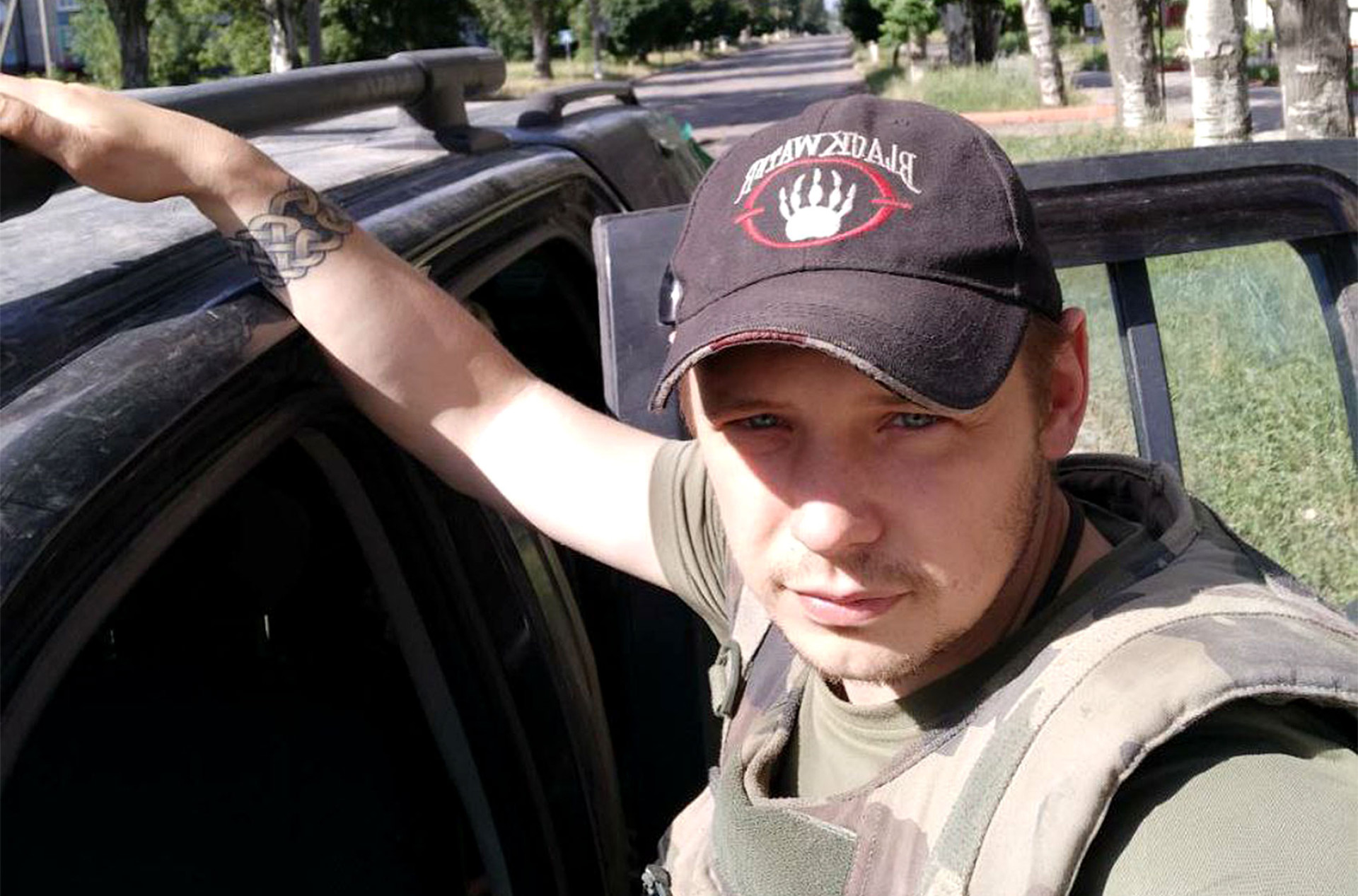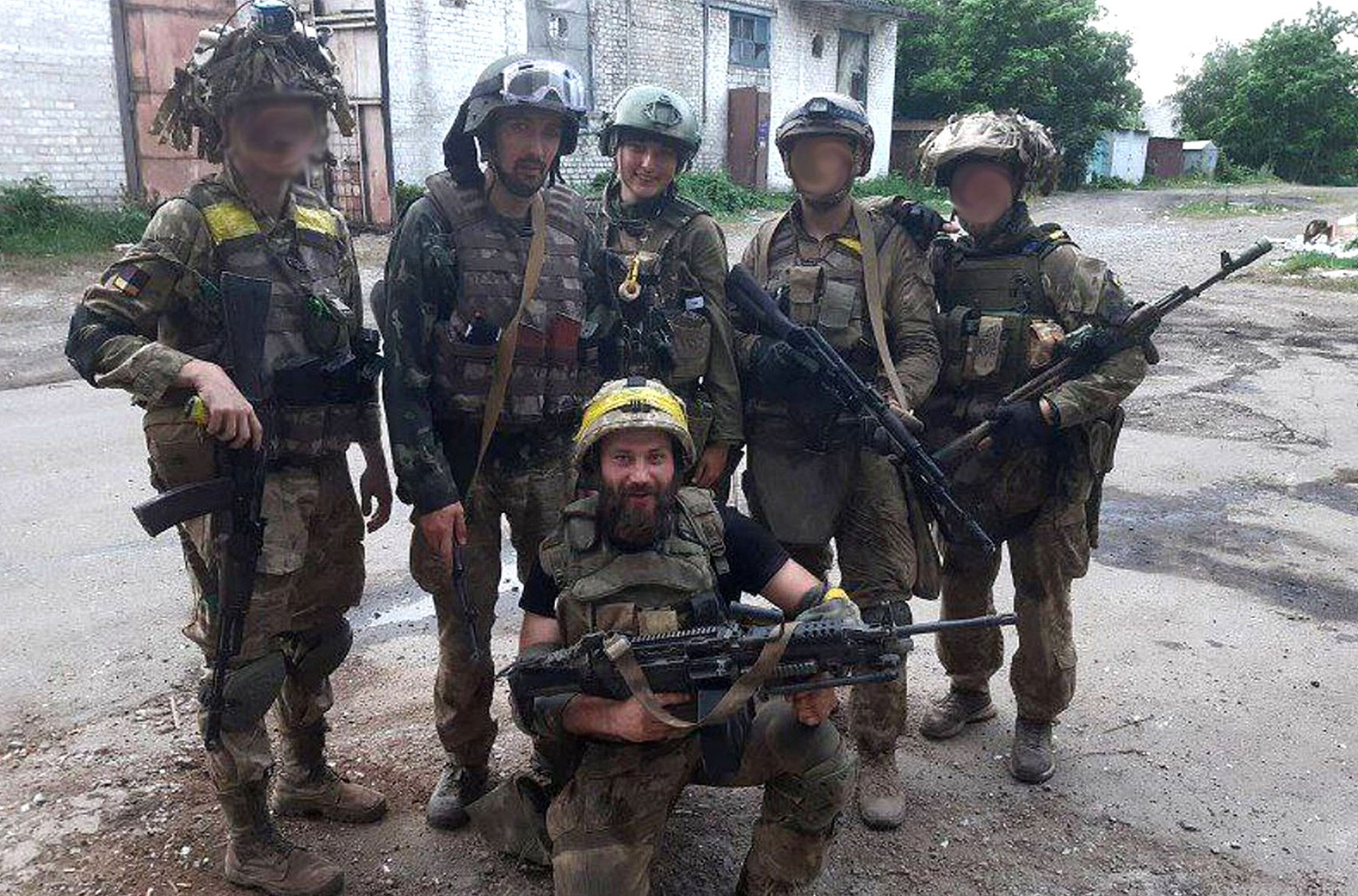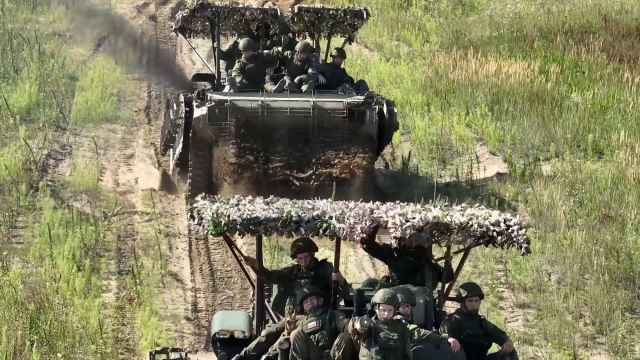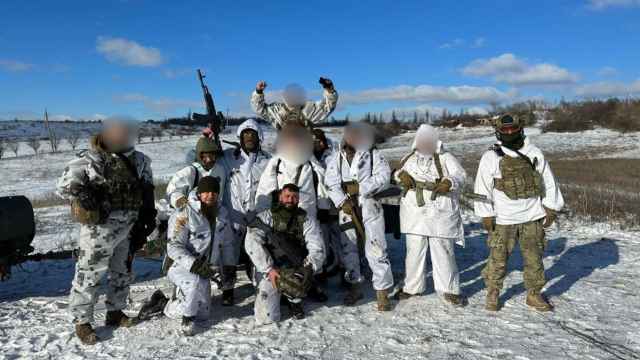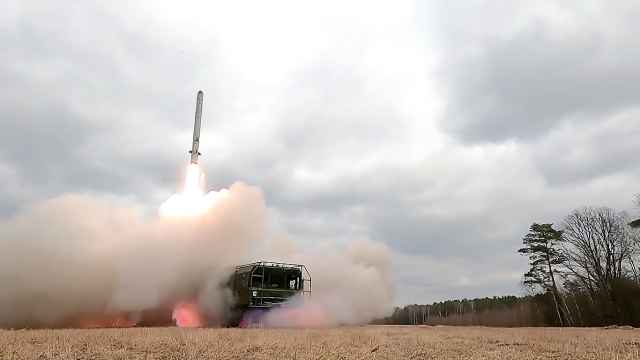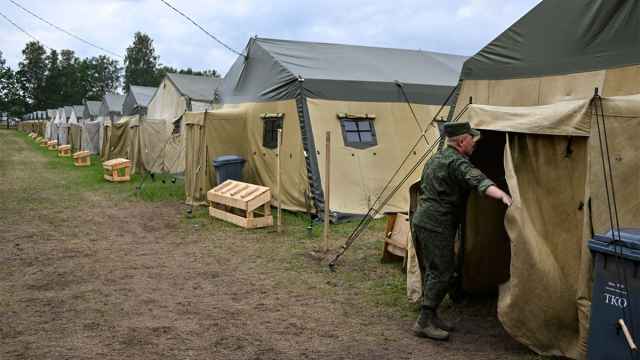Andrzej Kshetussky was one of hundreds of thousands of Belarusians who peacefully protested against the fraudulent re-election of their country’s longtime leader, Alexander Lukashenko, in 2020.
Three years after those protests were brutally repressed, he is now fighting alongside the Ukrainian army against invading Russian forces.
“We lost all protest infrastructure [and] oppositional organizations in the country,” Kshetussky told The Moscow Times ahead of the anniversary of the August 2020 election. “Tens of thousands of people left [Belarus], they were forced to leave. We have 1,000 political prisoners. This is a defeat.”
Like many of his countrymen who took a similar path from nonviolent protest toward armed service, he hopes that helping Kyiv defeat Russia will hasten the downfall of close Kremlin ally Lukashenko and the rise of a democratic Belarus.
“Ukraine’s victory is the first step, a precondition for further regime change in Belarus,” Kshetussky said by phone.
When Russian forces went over the border into Ukraine in February 2022, despite his lack of military experience, Kshetussky enlisted in Ukraine’s Azov Battalion before later joining the Kastus Kalinouski Regiment, a unit of Belarusian nationals fighting for Ukraine.
In one photo from this period, he is seen standing in a trench and smiling while holding a Swedish-made anti-tank weapon.
By mid-2022, he had left the battlefield and founded the Belarusian Veteran Association, which provides support to hundreds of Belarusians who, like himself, protested in Belarus and then fought in Ukraine.
While Belarus has not directly taken part in the hostilities in Ukraine, it acted as a key launchpad for Russia’s invasion, giving Russian forces a route toward Kyiv from the north. Injured Russian soldiers have been treated in Belarusian hospitals, and missile strikes have been launched from Belarus’ territory.
In recent months, Russia has transferred nuclear weapons to Belarus, while Russian mercenaries from the Wagner Group have relocated near Minsk following its leader Yevgeny Prigozhin’s aborted mutiny.
Belarusian citizens have been largely opposed to Russia’s war in Ukraine as well as to their country’s close alignment with Moscow.
According to Pavel Slunkin, a former Belarusian diplomat who broke rank with Lukashenko’s regime in 2020 and is now a visiting fellow at the European Council on Foreign Relations, only 3% of Belarusians support direct Belarusian involvement in the war.
Between 75% to 85% of them oppose the deployment of Russian nuclear weapons in Belarus, he added.
Some Belarusians have taken a step further in opposing the Russian invasion by enlisting with the Ukrainian army. While the exact numbers are hard to come by, Kshetussky estimates that approximately 400 Belarusian fighters are currently on the frontlines.
In the Kastus Kalinouski Regiment, members speak with one another in the Belarusian language, as part of their desire to reclaim Belarus’ history and culture from Soviet and Russian influences.
In the past week alone, four of its fighters have been killed. The regiment said that these four soldiers fell “for the independence of Ukraine and Belarus,” adding that the names of the dead will be “proudly celebrated in their native Belarus, in street names, history books and in the songs of their native people.”
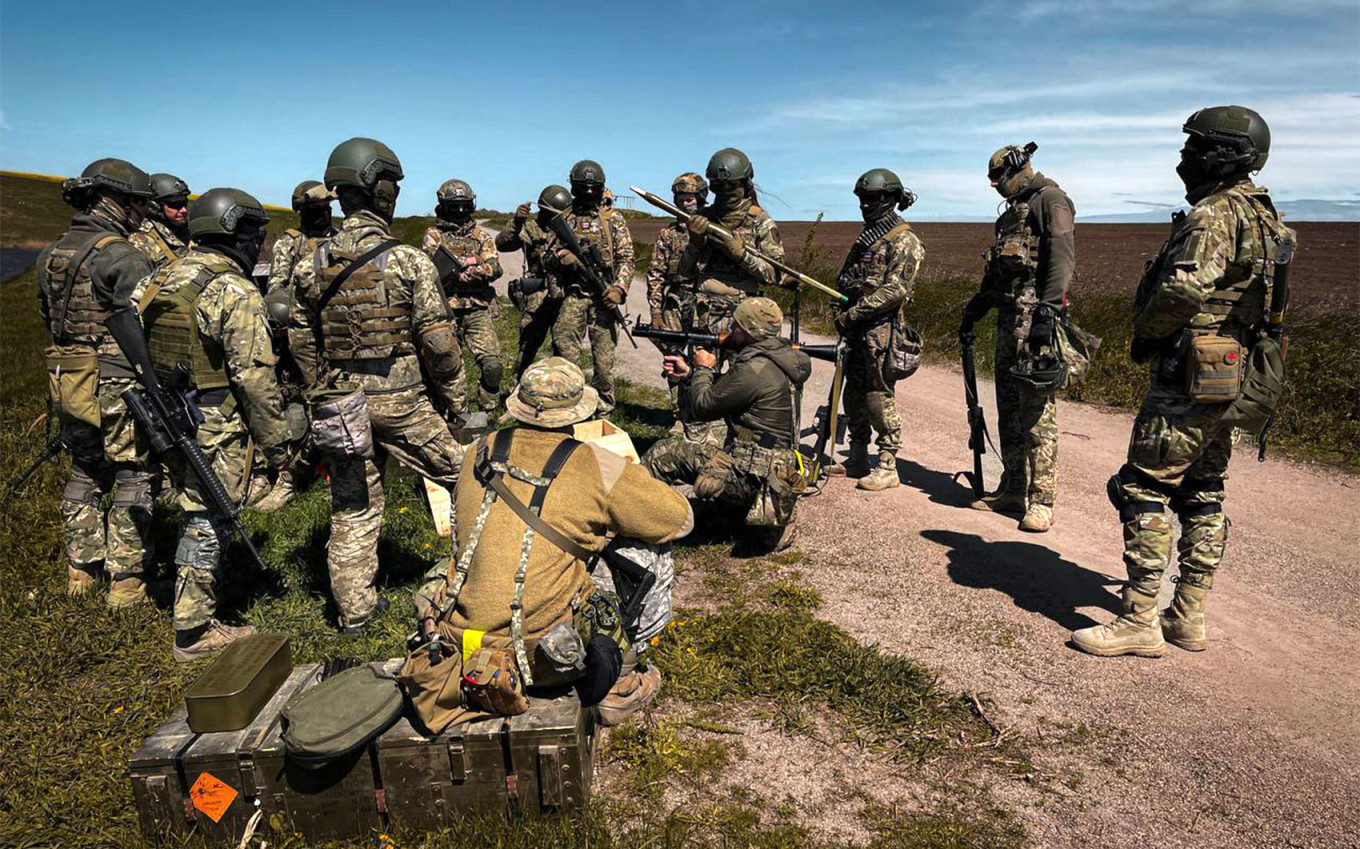
Belarus’s pro-democracy protests started in May 2020 as Lukashenko, in power since 1994, declared his intention to run for a sixth presidential term. The protest movement gradually gained steam, culminating in the weeks after Lukashenko’s widely disputed re-election by a margin of 81%.
Tens of thousands of Belarusians took to the streets to demand Lukashenko’s resignation — but were met with widespread and brutal repression.
The crackdown, which is still ongoing, allowed Lukashenko to remain in power and forced thousands of dissidents into exile. Nearly 1,500 political prisoners are detained in Belarus, including protest leader Maria Kolesnikova.
Vasili Grebenshikov, an IT worker from the Minsk region, was one of the thousands arrested for taking part in the protests. He fled to Ukraine after being released from detention and was in the western city of Lviv when Russia launched its invasion.
Like Kshetussky, Grebenshikov chose to join the Ukrainian forces, putting to use his seven years of experience in the Belarusian armed forces to fight against Russian troops in Bucha, Irpin, and the Mykolaiv region.
He said his decision to fight for Ukraine was motivated by his desire to return to Belarus and to repay his “debt” to the country that sheltered him.
Slunkin said the transformation of these peaceful protesters into fighters is understandable.
“They tried peacefully through elections, through protests, to defend their right to a European future, a democratic future. They voted against Lukanshenko. But in response, they were beaten and killed,” he said. “And when people realized that, despite all their efforts, despite their desires, they are mocked, they are called criminals, enemies. What can be the reaction? We resist.”
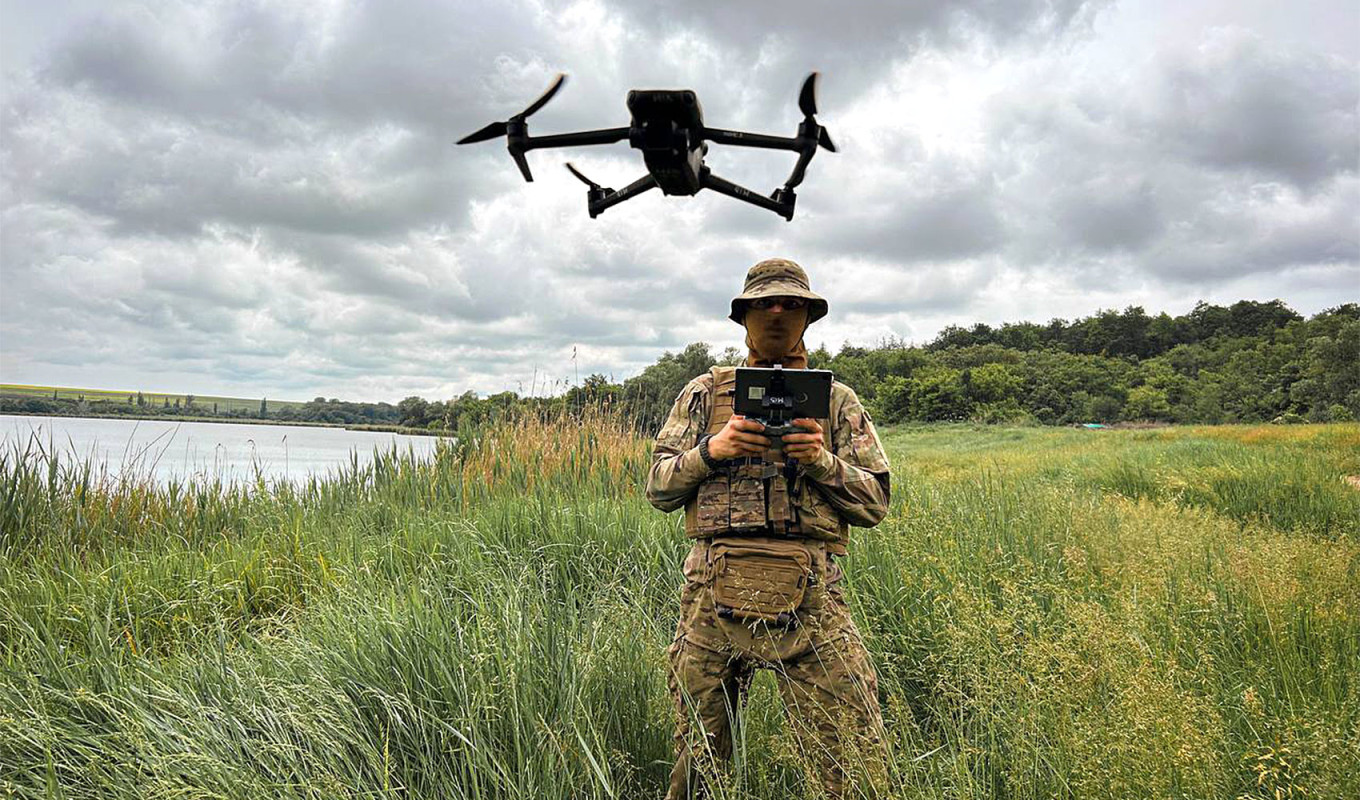
On Aug. 23, 2020, hundreds of thousands of protesters surrounded Lukashenko’s Minsk palace, waving the white and red flags of free Belarus. Car speakers blasted the late Soviet-era rock song “Peremen” (“Changes”) by the band Kino.
The security forces’ loyalty was put to the test. Lukashenko demonstrated his unwavering force by releasing footage of himself wearing body armor and holding a Kalashnikov rifle.
Against security forces who fired rubber bullets and flash grenades and beat protesters with batons, the crowds held flowers, balloons and ribbons.
Both of the fighters interviewed by The Moscow Times expressed frustration toward the 2020 protests — namely that protesters remained peaceful in the face of an intense crackdown.
Protest scholars have argued that no government can remain in power when faced with a mobilization of 3.5% of the population. In Belarus, 14% of citizens said they had taken part in a protest action, with around 300,000 to 500,000 people (3.15-5.2% of the country’s total population) taking to the streets simultaneously on certain weekends of August 2020.
Grebenshikov said he had already resented the absence of more violent actions even then, saying he believed these tactics could have helped oust Lukashenko.
“The idea that if 3% of the population takes to the streets, then a dictator will fall, is only a myth. I already understood that nothing can be solved here by peace. Only armed resistance, only a military scenario,” Grebenshikov said.
Kshetussky also expressed resentment toward the protest leaders who, he believes, “sent thousands of protesters to face arrest” without a clear strategy for regime change.
However, many protesters at the time wished to avoid resorting to violent confrontations with law enforcement. Protest leaders were also swiftly arrested or forced to flee abroad — if they had called for more violent actions, Slunkin said, it was unlikely that the crowd would have followed suit.
After having tried the path of nonviolent protest, Grebenshikov and Kshetussky said they remained committed to enacting change in Belarus by pushing for Russia’s military defeat in Ukraine.
“Many guys already died for the future of Belarus,” Grebenshikov said, “and we all want to return home.”
A Message from The Moscow Times:
Dear readers,
We are facing unprecedented challenges. Russia's Prosecutor General's Office has designated The Moscow Times as an "undesirable" organization, criminalizing our work and putting our staff at risk of prosecution. This follows our earlier unjust labeling as a "foreign agent."
These actions are direct attempts to silence independent journalism in Russia. The authorities claim our work "discredits the decisions of the Russian leadership." We see things differently: we strive to provide accurate, unbiased reporting on Russia.
We, the journalists of The Moscow Times, refuse to be silenced. But to continue our work, we need your help.
Your support, no matter how small, makes a world of difference. If you can, please support us monthly starting from just $2. It's quick to set up, and every contribution makes a significant impact.
By supporting The Moscow Times, you're defending open, independent journalism in the face of repression. Thank you for standing with us.
Remind me later.



